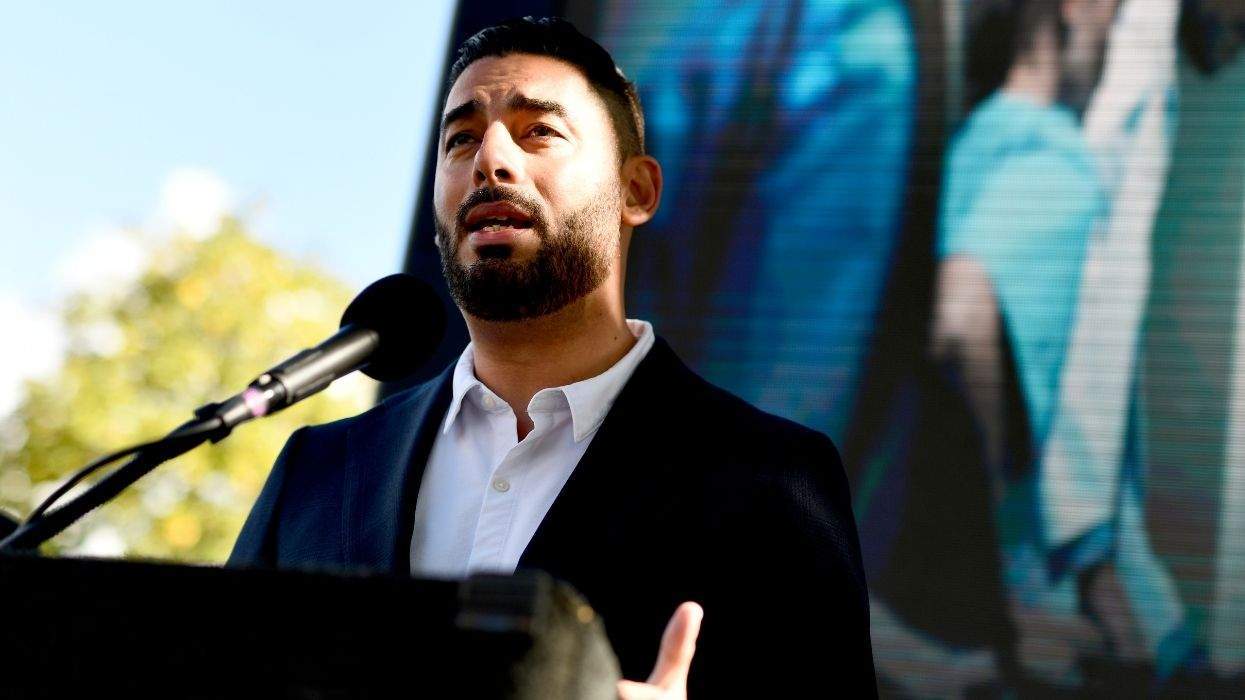It's now clear that the early focus by health officials and media on the vulnerability of older adults to COVID-19 had disastrous and unintended consequences. These stories, coupled with initial public health guidance that only targeted older adults and those with underlying health conditions, falsely reassured everyone under the age of 65 that they had little to worry about if they contracted the disease. Even worse, by focusing on the coronavirus's impact on older adults, we failed to convey the vital role that everyone, regardless of age, has to play in stopping the spread of the virus. The only way we are going to get through this pandemic is by staying at home as much as possible and limiting physical contact with others.
That said, some people are at higher risk of contracting the coronavirus. These include first responders and health care providers who are frequently exposed to people with the virus but are working without the personal protective equipment that can keep them safe. And others are at higher risk of complications from COVID-19. These include people over age 65, people living in institutional settings such as nursing homes and prisons, people with cardiovascular disease, diabetes, moderate to severe asthma, chronic lung disease, pregnant women, and people who are homeless.
For a variety of reasons, LGBTQIA+ people are also more vulnerable than the general population to complications from COVID-19, and it is vitally important that we understand this so we can do everything possible to keep ourselves and our families safe.
Due to the impact of stigma and minority stress on overall health, LGBTQ people are more likely to have some of the underlying health conditions, such as cardiovascular disease that could increase their vulnerability if they are exposed to the novel coronavirus. They're also more likely to engage in some of the behaviors, such as smoking and vaping, that increase the risk of infection by increasing the possibility of transmitting the virus from hand to mouth. Also, because COVID-19 is a respiratory disease, people who smoke or vape at greater risk of complications if they get COVID-19.
Years of research have shown that lesbians are more likely to have poor or fair health, multiple chronic conditions, heavy driving and heavy smoking compared with straight, cisgender women. Bisexual women are more likely to have multiple chronic conditions, severe psychological distress, and engage in heavy drinking and moderate smoking. Lesbians, gay men, and bisexuals of all ages are more likely to be living with disabilities than the general population. LGBTQ youth have higher rates of sedentarism, pre-diabetes, and diabetes. LGBT people are more likely to smoke and vape, and to use substances. And LGBT older adults experience higher rates of social isolation than straight and cisgender age peers.
Another important concern for LGBTQ people during this pandemic is that they often avoid seeking needed health care due to previous experiences of discrimination in health care settings or the fear of experiencing discrimination. New policies have been enacted at the federal level that make it easier for health care providers to refuse treatment based on religious or moral beliefs. John Auerbach, president and CEO of Trust for America's Health, recently warned that LGBTQ people may have more trouble accessing tests for COVID-19 due to their reduced access to health care.
There is no evidence to suggest that people living with HIV are at higher risk of contracting the coronavirus and the disease it causes, COVID-19. But the risk for people with HIV getting very sick is greatest in those with a low CD4 cell count, and those who are not adherent to HIV treatment and virally suppressed. Experts advise that people living with HIV should have a minimum 30-day supply of medications, be up to date with flu and pneumonia vaccines, and have a clinical care plan in place in case they are quarantined. Fenway Health has largely shifted to telemedicine whenever possible. In Massachusetts, thanks to Governor Baker's emergency order, all patients have a right to 60- or 90-day supplies of prescription medications. This may be the case in other states. Insurance plans must cover these expanded supplies. This along with pharmacy delivery services can help people minimize their trips outside.
All people, including LGBTQ people and those living with HIV, should be vigilant about adhering to social distancing guidelines, which means staying home and only going outside for essential services such as accessing health care or medications, and food shopping. People living with HIV should make every effort to adhere to their treatment regimen by taking their HIV medication daily. We can go outside to exercise as long as we maintain at least six feet of distance from other people.
Last, we may be isolated, but we need to hold on to our community. Check in by phone or social media on your friends and family, especially those who are older or living with a disability that makes it hard for them to go grocery shopping. And try to remain hopeful. We are in for a long haul, but we will get through this together if we take the appropriate precautions and take care of one another.
Sean Cahill is the Director of Health Policy Research at The Fenway Institute at Fenway Health and author of the policy brief, Coronavirus, COVID-19, and Considerations for People Living with HIV and LGBTQIA+ People.















Charlie Kirk DID say stoning gay people was the 'perfect law' — and these other heinous quotes
These are some of his worst comments about LGBTQ+ people made by Charlie Kirk.